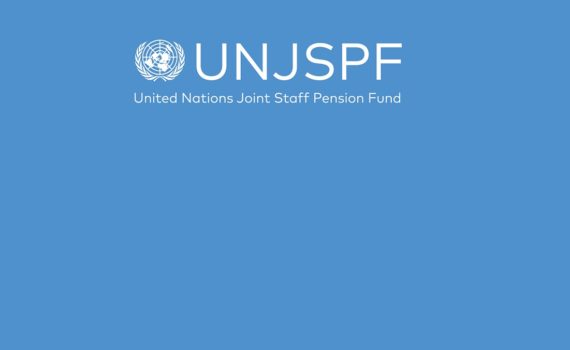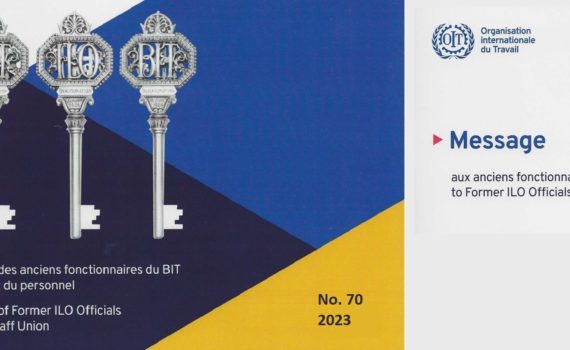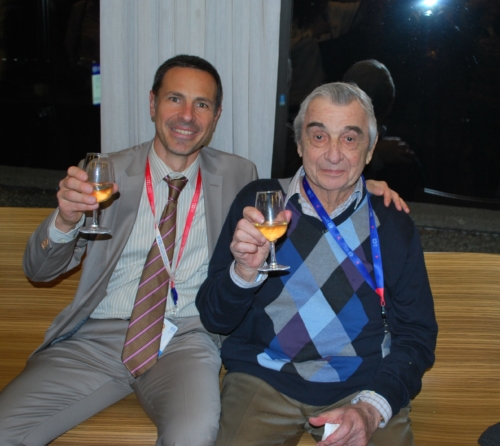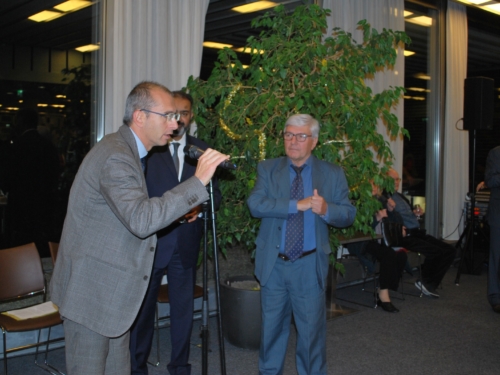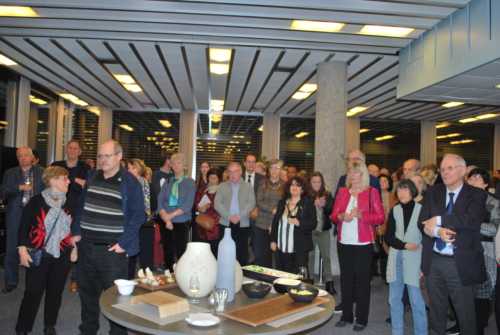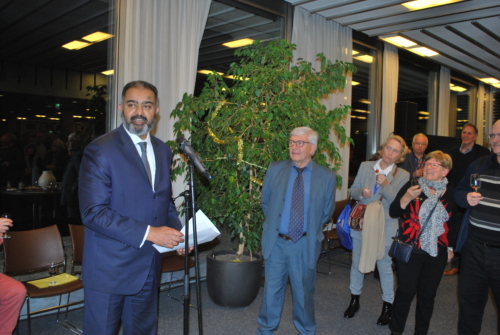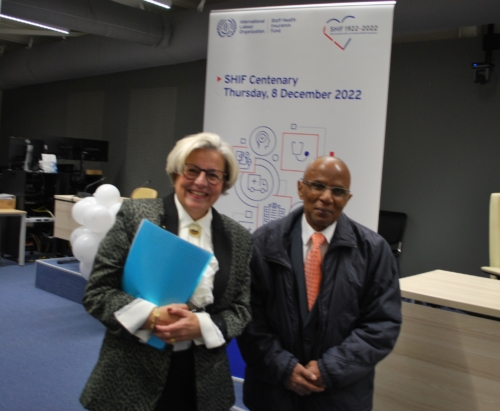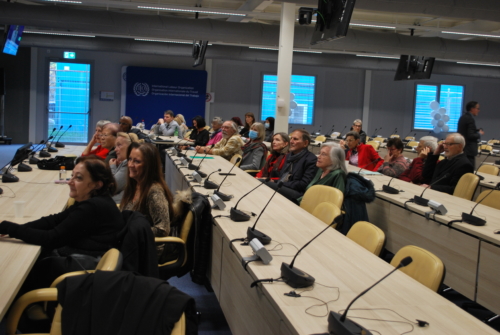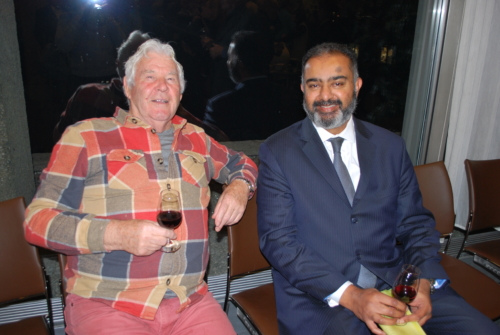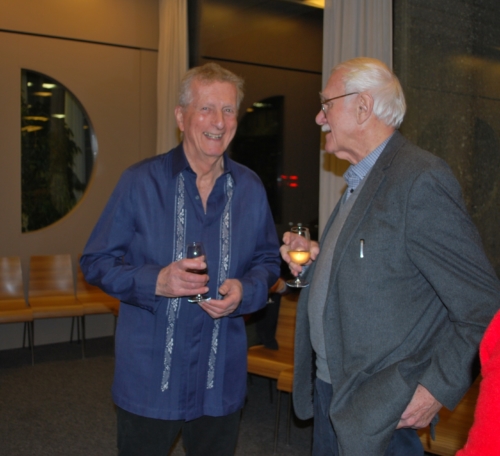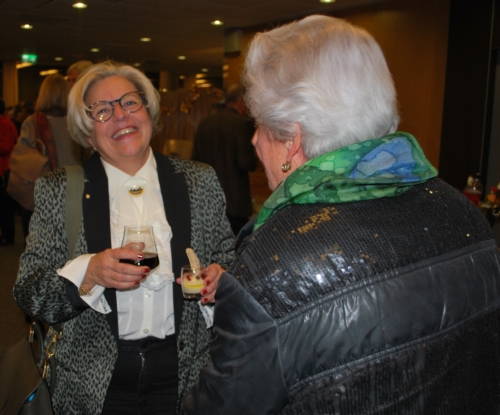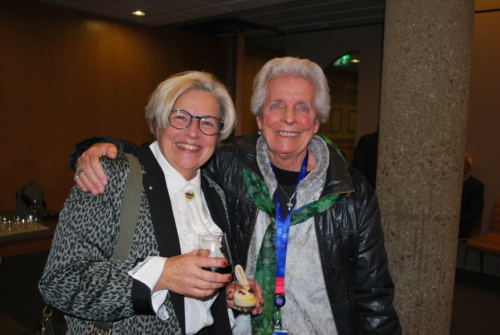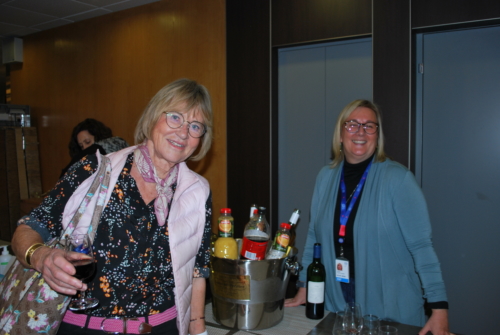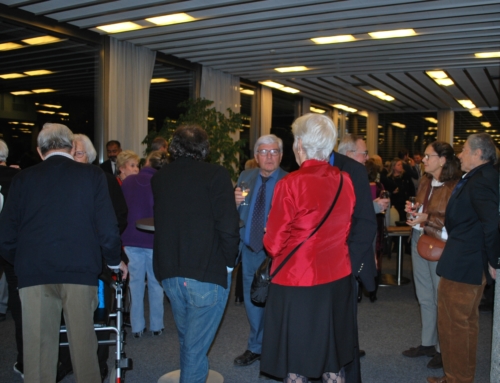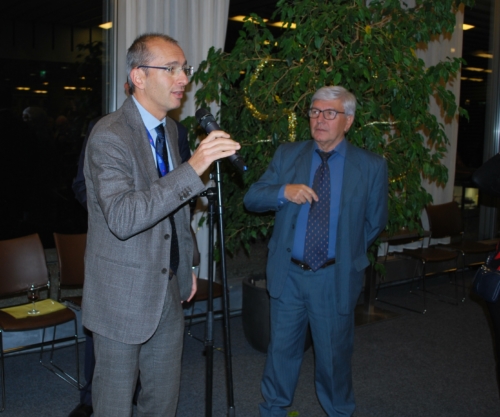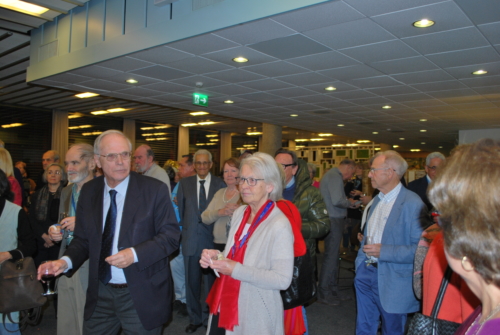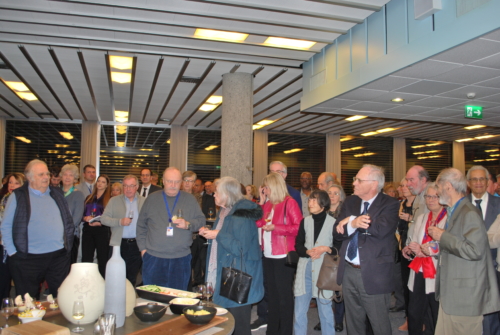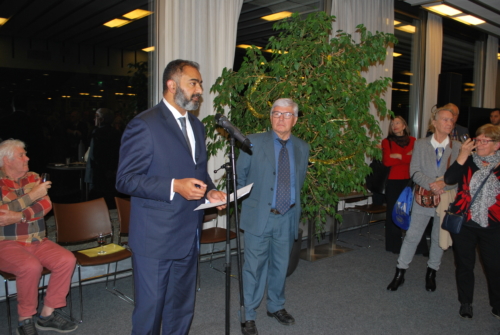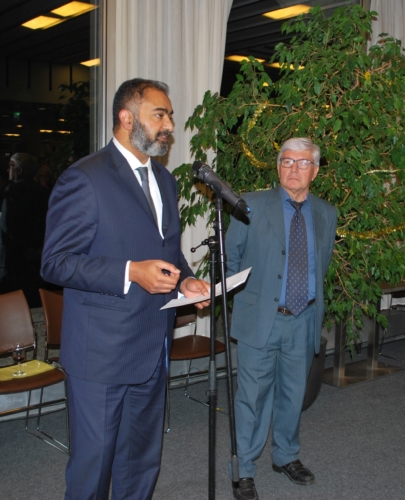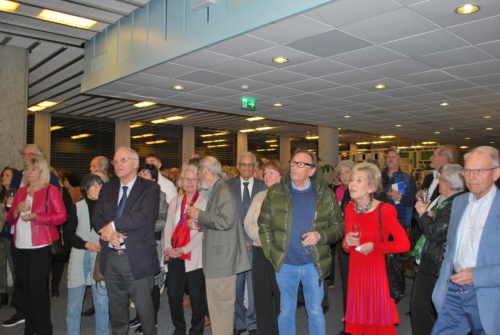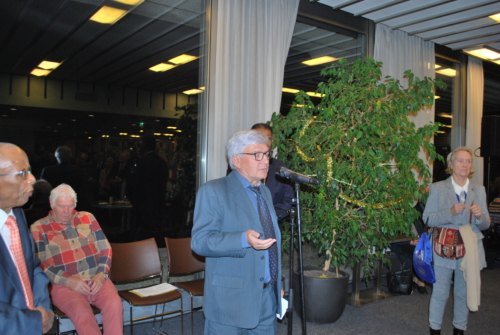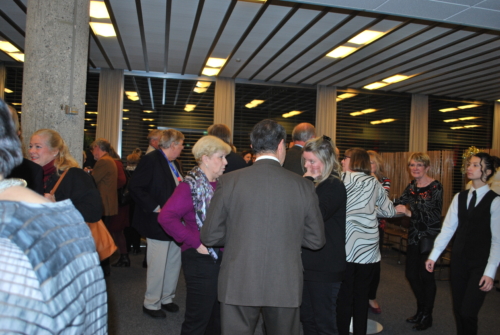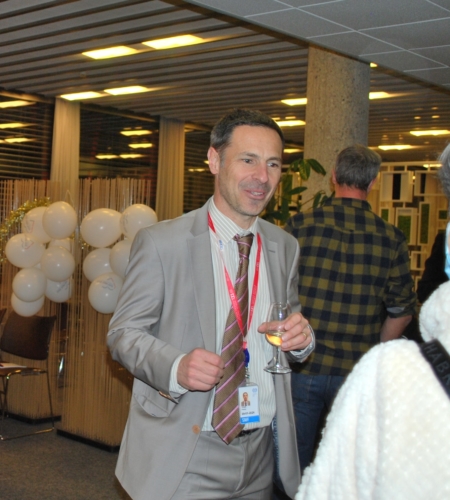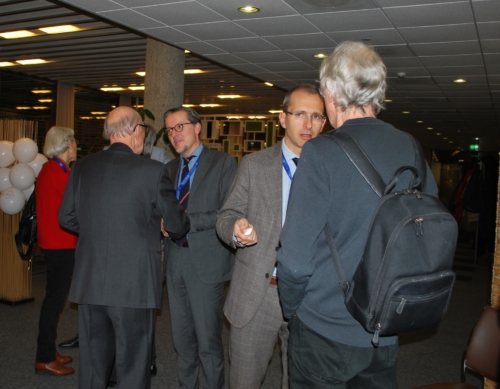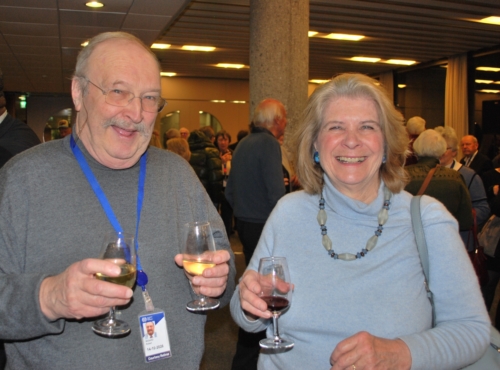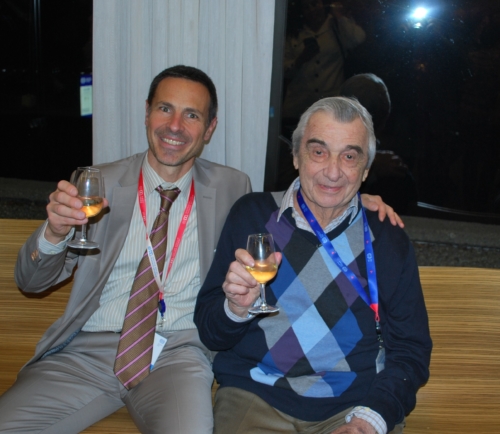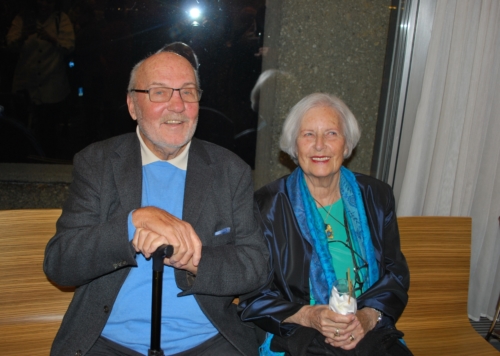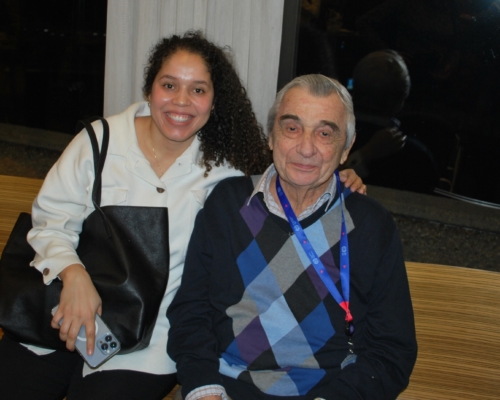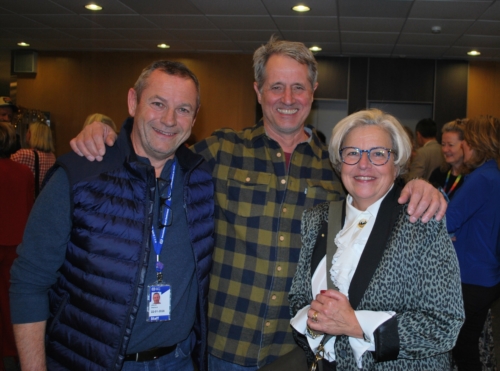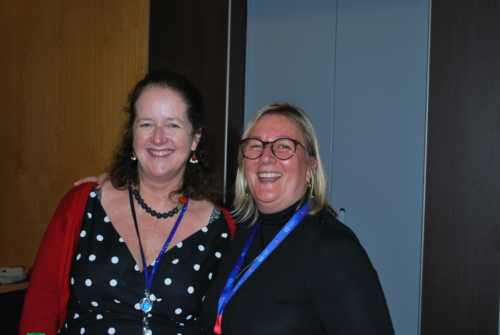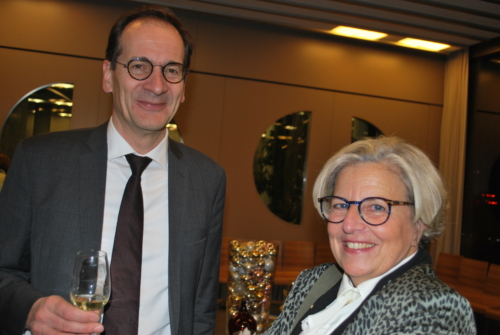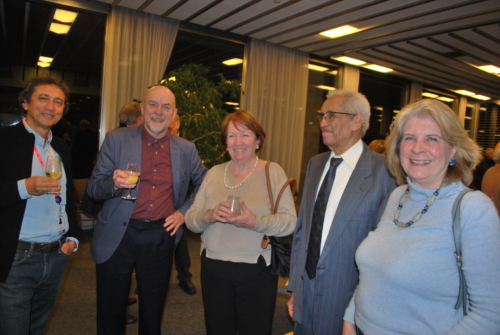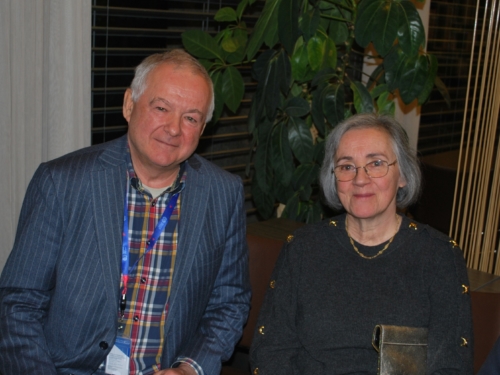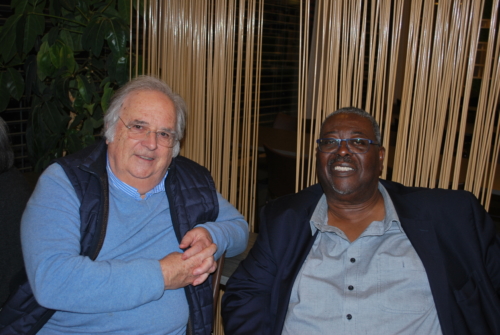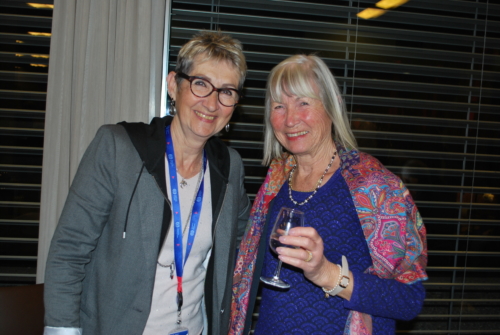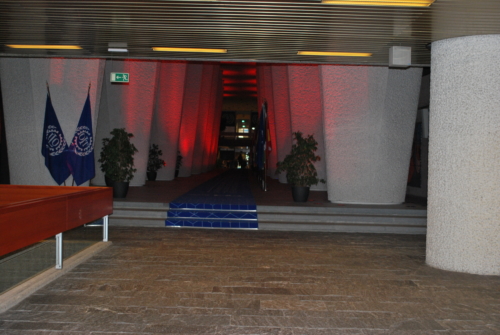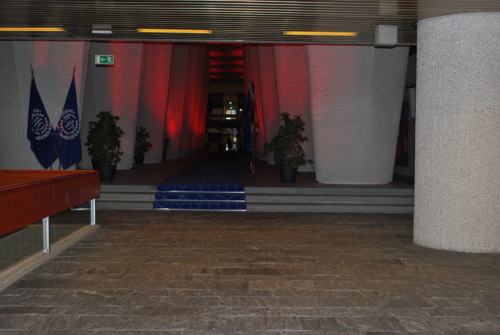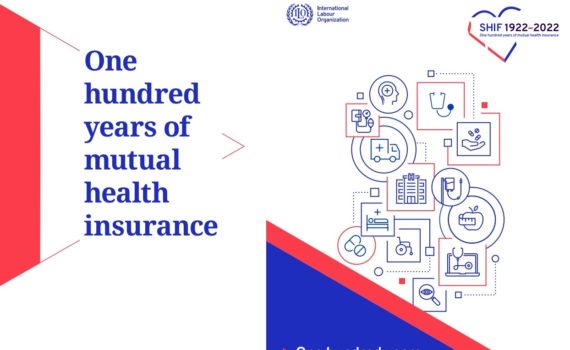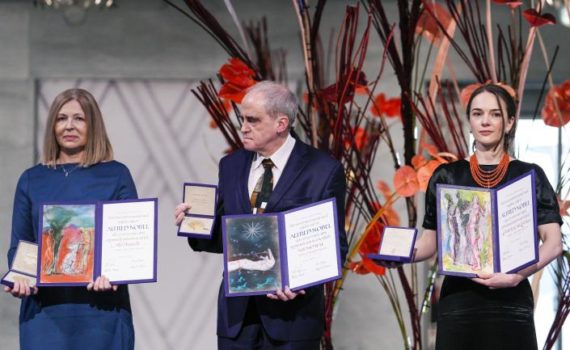The afternoon of 8 December 2022 was marked by two notable events at the ILO: the SHIF Centenary and the reception for retired staff, the first since December 2019 due to the COVID pandemic.
One hundred years of the SHIF
The Centenary General Meeting of the Staff Health Insurance Fund (SHIF) took place in the temporary ILO Governing Body room at the Geneva headquarters. Both active and retired staff from the Geneva region were invited to participate in person, with the possibility of also participating online. The meeting was chaired by Tilmann Geckeler, President of the SHIF Management Committee, representing the administration. He spoke several times throughout the meeting, notably recalling his personal involvement in the governance of the SHIF for over 20 years. He particularly thanked SHIF staff, who were all in the room, for their daily work in reimbursing healthcare expenses and their availability to the members of the Fund.
SHIF News
Scheduled from 3 to 5 p.m., the meeting was divided into two parts: the first was devoted to SHIF news and the results of the satisfaction survey conducted in 2022, and the second was devoted to the Centenary. In his presentation, Florian Léger, SHIF Executive Secretary, mentioned some of the new features introduced, including a new SHIF membership certificate that can be downloaded from the Fund’s website, and a new insurance card. A call centre is being set up to respond to telephone requests for information. He noted that 80 per cent of claims are received electronically (via shifonline.ilo.org); some 1,000 out of a total of 2,500 retired staff members now use it. Amendments concerning governance have been made to the Regulations and Administrative Rules, primarily around anti-fraud issues; a 24/7 telemedicine service is expected to be available in 2023. The 2020 and 2021 SHIF annual activity reports are now available in electronic format on the Fund’s website.
Concerning the satisfaction survey, about 1.000 responses were received: 84 per cent of respondents were globally satisfied with SHIF services but 76 per cent bemoaned long delays in reimbursement. In the discussion that followed, mention was made of the SHIF’s basis in solidarity, the number of claims submitted via SHIF Online (10 per cent of which may be rejected in the first instance), the proportion of supplementary/complementary reimbursements, representing about 2 per cent of the total, and the publication in hard copy form of annual accounts in particular.
SHIF Centenary celebration
The SHIF Centenary celebration began with a video message from Gilbert F. Houngbo, Director General of the ILO, absent due to his participation in the Asia-Pacific Regional Meeting. He spoke of the importance of the Fund in protecting the health of staff and thanked the SHIF team for their work. Dorothea Hoehtker of the ILO Research Department presented the results of her work recounting the history of the 100 years of mutual health insurance in the ILO. The initiative came from the ILO Staff Committee in December 1922 following the Spanish flu crisis.
Initially limited to certain individuals, protection was embryonic but has evolved over the past 100 years, with coverage being extended to technical cooperation staff in the regions, as well as families and retired officials. The Fund has suffered financial crises related to exchange rates, temporary US withdrawals from the ILO, rising healthcare costs and episodes of solutions being sought outside the Organization. But it maintained its course thanks to political will and action by the staff.
The result of Dorothea’s research work is a publication entitled One hundred years of mutual health insurance (ILO, 2022), which is available on the websites of both the SHIF and the Former Officials Section. It can be obtained in hard copy upon request from the SHIF secretariat. Dorothea is to be congratulated for her work of history and memory. The Centenary session ended with a presentation by Adnan Chughtai, ILO Treasurer and Financial Comptroller, representing the Director General, as well as a speech by Catherine Comte-Tiberghien, insured persons’ representative. Each participant was given a copy of the new publication on their way out.
Photos Album :
The reception for retired staff
On 8 December 2022, ILO management had also invited retirees in the Geneva region to attend a reception. The event was organized by Luca Bormioli, Acting Director of HRD, and Fiona Periat, who has worked on organizing retired staff receptions for some years. No reception had been possible since December 2019 due to the COVID pandemic. More than 200 people were present this time. The joy and pleasure of seeing each other again was etched on most faces, and voiced over and over again by a succession of retired staff members. Participants in the Centenary General Meeting joined the reception, and it was an opportunity for direct contact with the staff of the SHIF, which has seen some turnover in recent years due to retirements. Photos of the reception are available on our website (www.anciens-bit-ilo.org).
On behalf of Gilbert F. Houngbo, Adnan Chughtai greeted the participants and recalled the mission and objectives of the ILO, which have remained the same since its creation, especially social justice, which is the common denominator of the programmes of activity. The political, economic and social contexts have nevertheless changed over the years and the world is currently experiencing major crises. The ILO must take into account these new situations. The ILO Treasurer and Financial Comptroller mentioned the financial difficulties of many countries and the resulting need to manage them. New challenges must be met by the staff under the authority of the Director General and the guidance of the Governing Body.
Taking the floor after Adnan Chughtai, François Kientzler, Executive Secretary of the Former Officials Section, spoke about this important moment of reconnection. Referring to the SHIF Centenary session, he recalled that the SHIF Management Committee has been active since its origin in improving the Fund’s operations and benefits. The Fund has gone through turbulent times, including attempts to outsource. There are regular discussions within the United Nations on whether or not retirees should remain in the health insurance schemes of international organizations. However, their exclusion would leave many of them unprotected because a number of countries do not have health insurance schemes.
François Kientzler cited some other issues of concern, notably the difficulty that retirees have in accessing ILO offices in the regions. Retired staff should have the same opportunities and rights as those visiting headquarters in Geneva. He recalled that Message is a magazine open to all and called on anyone who wishes to propose an article, whether a report on an event or a tribute to a former colleague who has passed away, not to hesitate to contact him. He also expressed the hope that information meetings can be held in the future and that the ILO Arts and Decoration Circle will be able to resume its annual exhibition.
In conclusion, he wished season’s greetings and a happy new year 2023 to all participants and their families.
Photos Album :
December 2022
Bureau of the Former Officials Section
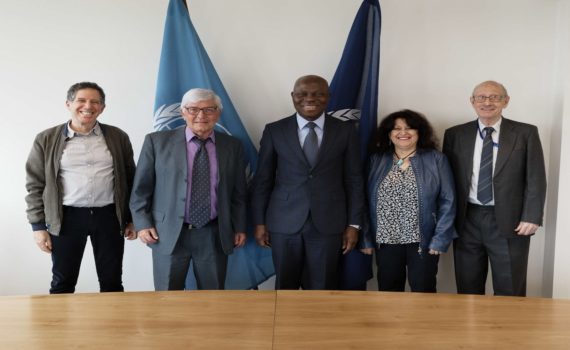
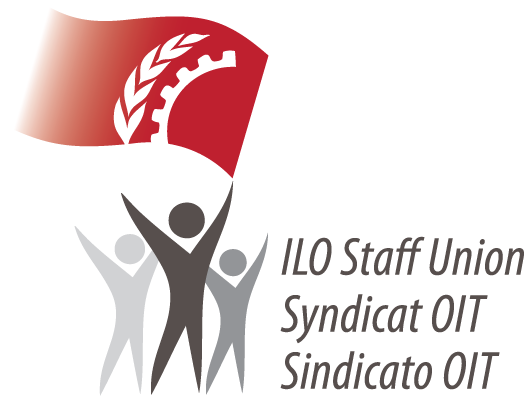 The Section of Former Officials of the ILO
The Section of Former Officials of the ILO
